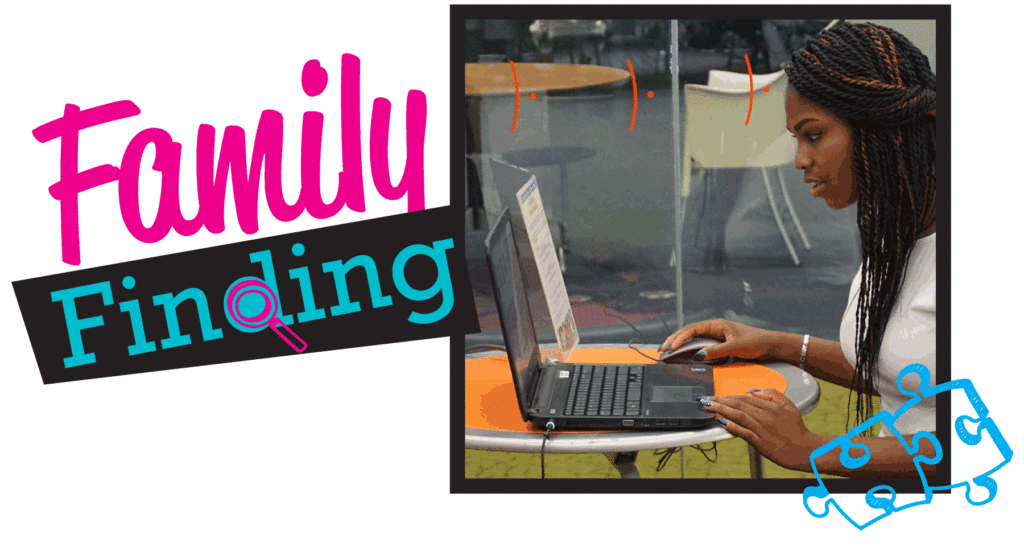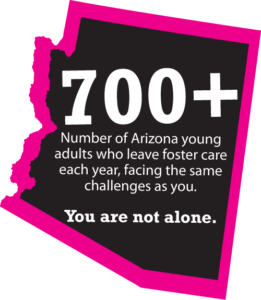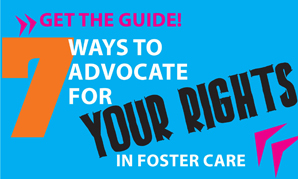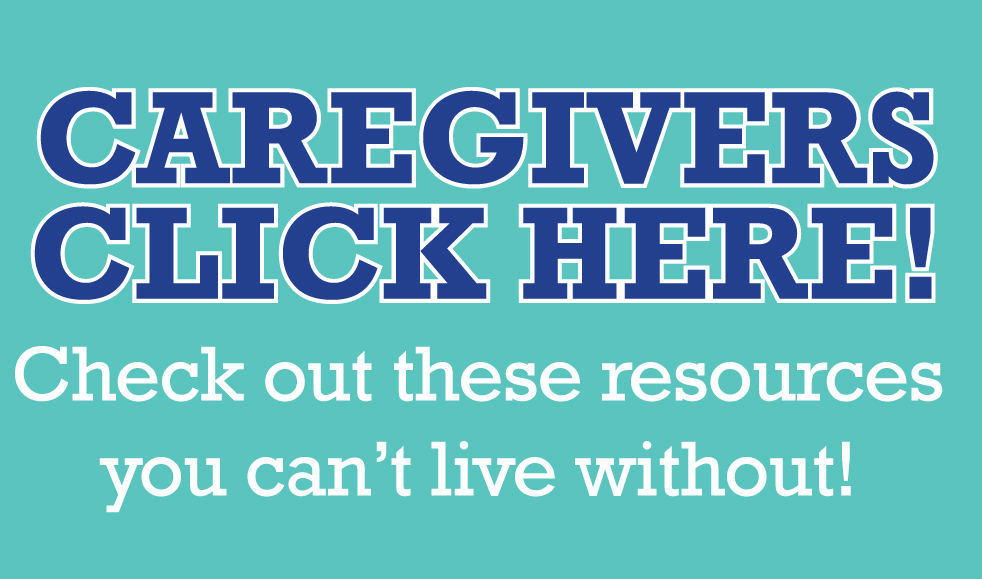 Many young adults transitioning from foster care feel something is missing. You may wonder if you will ever see your siblings again or hope to connect with biological parents, grandparents and other family members.
Many young adults transitioning from foster care feel something is missing. You may wonder if you will ever see your siblings again or hope to connect with biological parents, grandparents and other family members.
You deserve to know your history—a favorite childhood toy, where you grew up, or a relative’s cherished memory of you. Unfortunately, children and youth who experience foster care are often unaware of their history and identity because permanent, lifelong connections to family are missing. Finding family members can help provide life-long support that develops a sense of security and belonging.
What Family Finding Can Mean To You – Family finding can look different for everyone. It could mean doing an in-depth search to connect with relatives and other supportive adults who would like to step in and provide a place for you to live. It could also mean finding family, including siblings, to spend holidays, birthdays, and special events with. For some individuals, connecting with family means having people to celebrate successes with and lean on for comfort and support when things get hard. The goal is to create permanent relationships with a relative(s) as well as establish long-term emotional support networks.
Are you Ready To Begin This Journey – The thought of re-connecting with family members and supportive adults from your past can be a complicated process with lots of mixed emotions. Some young adults say it feels awkward and a little weird at first. When beginning this journey it is important to be emotionally ready and prepared for what the process may look like and the outcomes that may result. Many young people seek the support of social workers and qualified professionals who are trained in grief and loss counseling to help facilitate the process of safely re-connecting with family members.
Steps To Begin Your Search
Your Information – Once you turn 18, request all your vital documents (court, identity, education, etc). If you are over 18 you can access your documents now! This will make your search faster and more accurate.

- If you are 18 or older you can obtain information about your DCS closed case file by completing a Records Request Form. Within the form note exactly the information you are seeking- past addresses, phone numbers, emails, schools in which you attended, etc. Some information is likely to be concealed as you are only allowed information as it relates to you.
- For more information on requesting your records contact: DCSRecordsRequest@azdes.gov
Collect Information – Quicken your search by asking known relatives and family friends for information on the person(s) you are searching for including…

- First and/or last name
- Past and/or present address, phone number, city and county where the person lived
- Date of birth and/or estimated age
- Social security number
- Tribal affiliation
- Place relative works or worked in the past, or the type of work they have done
- Whether they have served in the military or been employed by the local, state, or federal government
- Government services the individuals may have received (food stamps, Cash Assistance, disability benefits, state health insurance, and behavioral health care etc)
- Whether or not the individual is or has been in jail or prison and if so, when and where.
 Right to Visitations – Youth in foster care have the right to family visitations including siblings while you are away from home. If you feel as though your rights to visit family and/or search for relatives have been violated you can take action to resolve the issue(s) and file a grievance.
Right to Visitations – Youth in foster care have the right to family visitations including siblings while you are away from home. If you feel as though your rights to visit family and/or search for relatives have been violated you can take action to resolve the issue(s) and file a grievance.
Search Services Provided Through The State – If you are currently in the custody of DCS and under age 18, or you are in extended foster care, request for your DCS Case Specialist to submit a Family Locate Referral. You can also ask your attorney to request for your DCS Case Specialist to submit a Family Locate Referral on your behalf. For more information or if you have questions, contact the DCS Family Locate Unit: familylocate@azdes.gov
Helpful Tips– If you cannot locate the person by phone or internet, try sending a letter to their last known address or current and last employer’s address
- You can use the United States Postal Service (USPS) to find addresses using the steps below:
Option 1: To verify a person’s last known address, send the USPS “Request for Change of Address Needed for Service of Legal Process” form or the “Address Information Request” form, along with a self-addressed stamped envelope, to the postmaster of the person’s last known address. Ask the local post office for these forms, as they are not available on the website.
Option 2: Contact the local post office of the person’s last known address and request forwarding address information. To find the delivery post office, go online to www.usps.com and select Locate a Post Office or call 1-800-ASK-USPS (1-800-275-8777), say “post office information,” then “delivery office,” and then enter the 5-digit zip code. - Check in your area for local shelters and speak with the coordinator in charge. They may not be able to tell you whether the particular individual is there, but you may be able to leave a message(s) for the person.
 How do you build your “network” or increase your “social capital?” It comes down to trust, right? People you know you can rely on… people you respect… people that empower you. That’s who you need on your side. Creating and maintaining lasting connections is one of the best ways to grow your network and ensure you have the social capitol to move successfully to the next phase of life.
How do you build your “network” or increase your “social capital?” It comes down to trust, right? People you know you can rely on… people you respect… people that empower you. That’s who you need on your side. Creating and maintaining lasting connections is one of the best ways to grow your network and ensure you have the social capitol to move successfully to the next phase of life.
Who Do I Want On My Team? Think about your people network and who you want to involve in your life. Your team members don’t have to be perfect – really, who is? – just people who want to support you as you make your way in the world. You need to believe in your team and know that they:
- Make good choices in their own lives
- Want you to succeed
- Have wisdom to share
- Can be reached when you need them
Who Could Be On My Team?
- Foster parents or guardians
- Guardian ad litem (Person appointed to represent the best interests of a minor in a court case)
- Child Safety Specialist (Department of Child Safety)
- Court Appointed Special Advocate (CASA)
- Lawyer
- Teacher
- Coach
- Mentor
- Church member
- Social Worker
- Friend
How Do I Get My Team Working For Me? Be direct. Tell those you’re recruiting that you want to surround yourself with people who will be there as you take this next important step into adulthood. You may need to ask questions, or just someone with whom to talk. Most people will be happy that you respect them enough to ask. And because they feel honored by your trust, most likely they’ll want to support you.
Mentoring Programs There are lots of ways another person can be supportive of you as you venture into adulthood. Foster Club has created a Permanency Pact that includes 45 suggestions. Check out AASK (Aid to Adoption of Special Kids) for mentoring services for foster youth.
 Long Term Connections
Long Term Connections
A number of relationships can be established that – unlike foster care – are meant to be permanent. These include adoption, reunification, guardianship and kinship care. Talk with your Child Safety Specialist so you know what they are and if you might want this with someone in your life.


